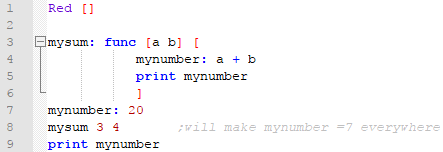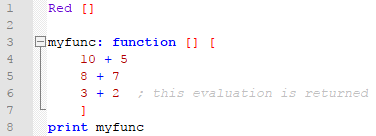Functions
Functions must be declared before they are used and so must be written on top of your program. However, this is not required if a function is called from within another function.
 func
func
Variables inside a function created with func are global. They are the seen by the entire program.
A function is created with func as follows:
<function name>: func [<argument1> <argument2> ... <argument n>] [ <actions performed on arguments>]

7
>>
Demonstrating that variables are global:
7
7
>>
 function
function
function makes its variables local, i.e. it hides (shades) the variables inside it from the rest of the program.
Same program as above, only using function instead of func:

Different results:
7
20
>>
Forcing variables to be global with /external refinement:
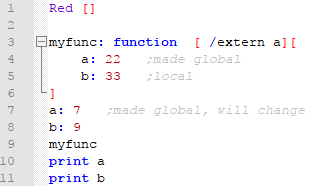
22
9
>>
Defining the argument type:
You can force your arguments to be of a certain datatype:

*** Script Error: mysum does not allow float! for its a argument
*** Where: mysum
*** Stack: mysum
>>
You may allow multiple datatypes:

7.2
>>
Or use an upper class of datatypes:

Returning values from functions:
The return value of a function is either the last value evaluated by the function or one explicitly determined by the word return:
Last evaluation example:
5
>>
return example:
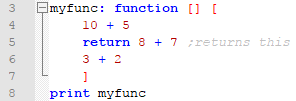
15
>>
Creating your own refinements:
You can create refinements to you functions, like the native refinements of Red: <myfunction>/<myrefinement>. The refinements are boolean values that are checked by the function:

13
7
>>
Note that arguments are not mandatory for refinements.
Assigning functions to variables
To assign a function to a variable (a word) you must precede the function with a colon: <word>: :<function>
 does
does
If your routine just do something with no arguments and no local variables, use the word does :
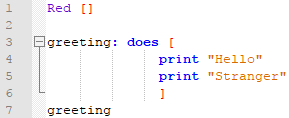
Hello
Stranger
>>
 has
has
If your routine uses no external arguments but has local variables, use the word has. has turns the argument into a local variable. Compare the three programs below. The first uses has with no argument, hence number is a global variable. The second gives number as argument, making it local. And the third shows that a function with argument need that argument to be sent by the calling event.
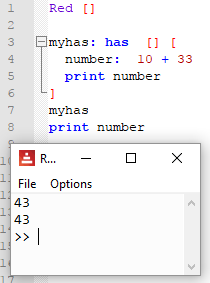
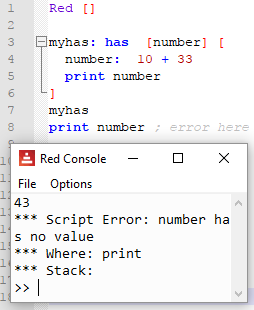
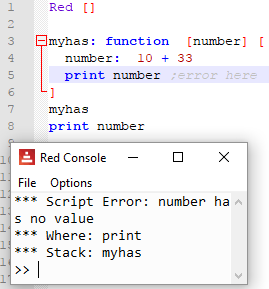
 exit
exit
Exits a function without returning any values.
